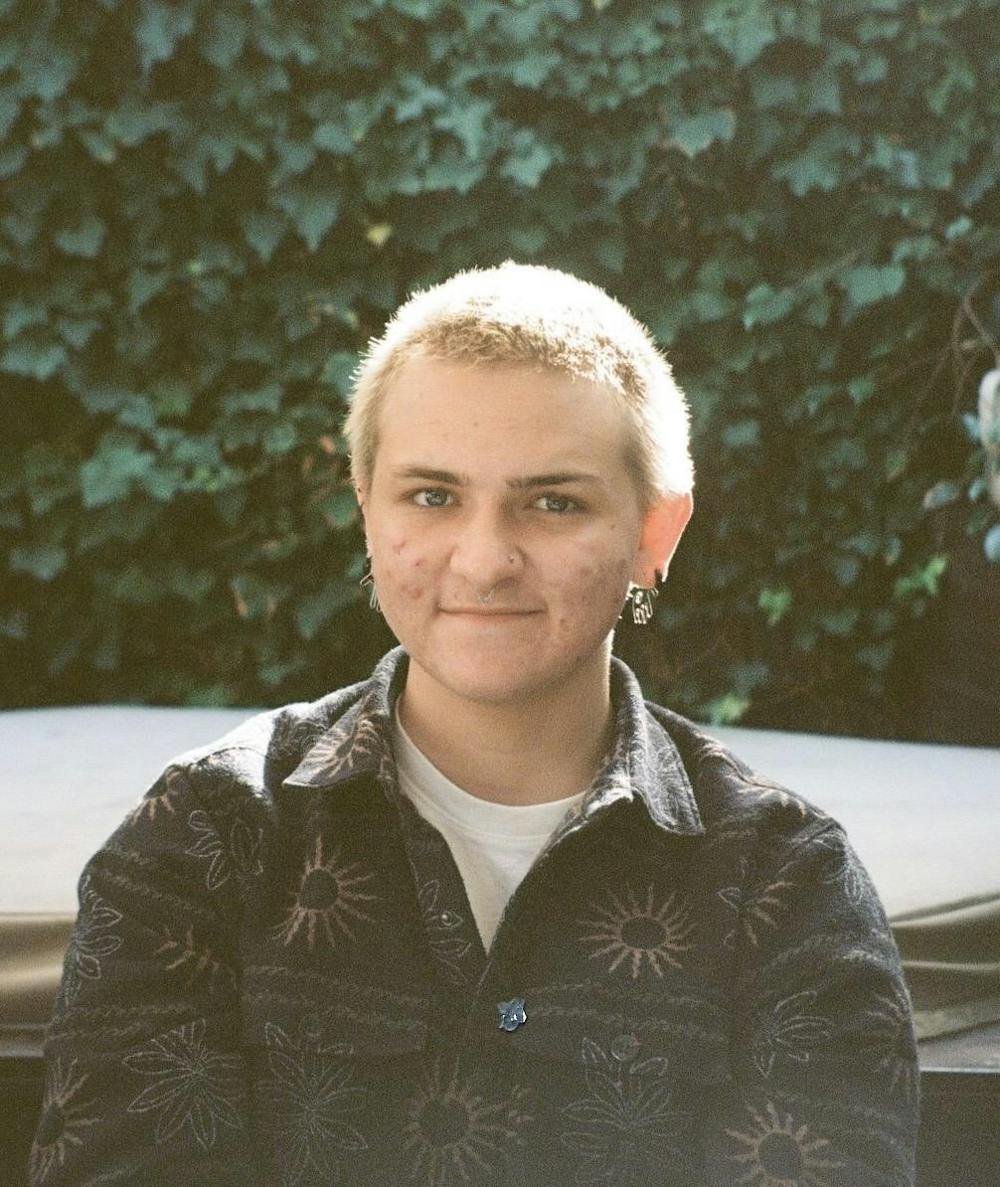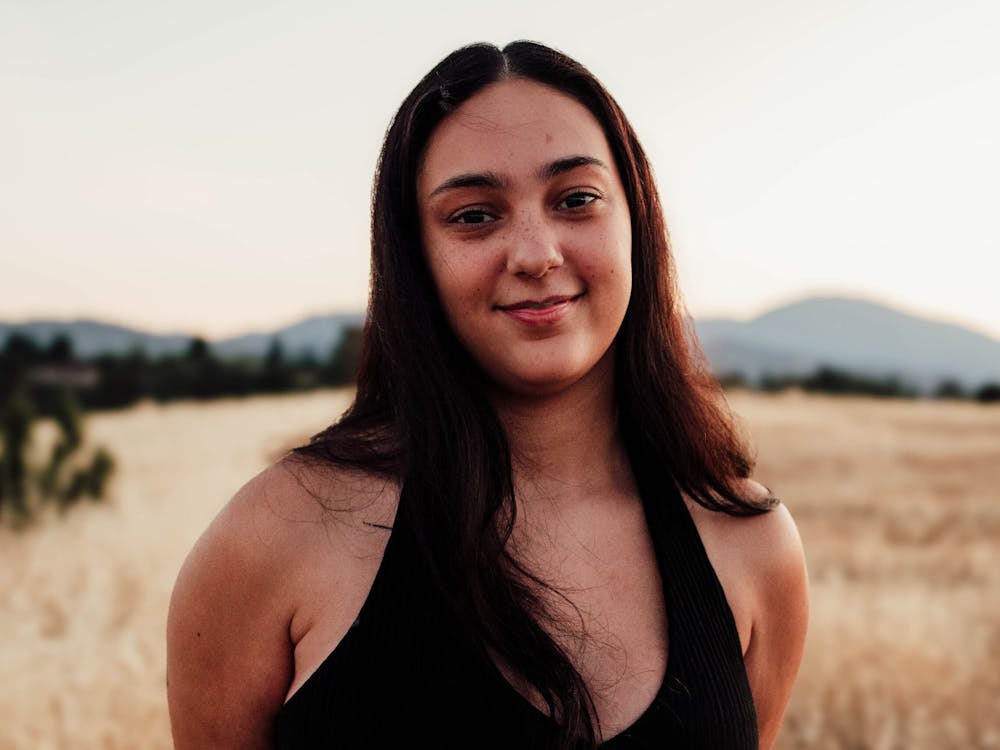I’ve been disabled throughout my entire time at UP, but it wasn’t until this semester that I became a full-time wheelchair user. Most students get around our small campus easily, a max 10-minute walk from one class to another. It’s normal not to think about accessibility, especially when visibly disabled people make up such a small minority of our campus. Back when I walked around this campus, even as a disabled person, only the occasional broken elevator brought access to the forefront of my mind. It’s impossible to know how inaccessible somewhere is, until it’s inaccessible to you.
Ever thought about how steep and long the ramp to the library is? Me neither, until it became my only option. Now, if I choose to use the library, I have to be sure I’m feeling healthy that day and consciously conserve my energy for at least a few hours before. And by the time I get up the ramp, odds are the exertion has pushed my heart rate too high and my oxygen too low to be able to do anything productive in the library anyway. This is one of many examples of something that may be ADA compliant, but is not accessible. The library is essentially off-limits to me now, somewhere I used to spend hours each week.
A lot of bathrooms and classroom doors are impossible for me to open from my chair, due to their weight or angle. If I need to pee, I have to wait until class is over to hopefully catch the bathroom rush so someone will be there to open the door for me (where I then hope there’s no able-bodied person unnecessarily using the accessible stall). I really value my independence, especially since my disability has shown me it’s something I can lose at any time. Being unable to go to the bathroom by myself on campus is dehumanizing and the definition of inaccessible, even though the ADA does not mandate automatic doors. I often opt for attempting to open doors myself rather than asking for help, which means I leave my mark on UP quite literally. When you see scratches and marks on the bottom of the bathroom doors, think of me.
And then there are the parts of our campus that were built before the ADA was passed and do not meet ADA requirements. Mago Hunt in particular is quite the adventure to navigate. The “accessible” entrance to the audience of the theater requires going over some significantly uneven pavement and cracks, where I have to be careful to not get wheels caught. The entrance to the basement means going down a steep hill on the road. There is no sidewalk and no way to open that door without someone inside letting me in. I recently tipped my chair over backwards in the road in the dark trying to get back up that hill. I have to take that route whenever I need to use the restroom; I go around the back of Mago, to the front of Franz, because the back entrance of Franz is not accessible and there is no accessible bathroom in all of Mago Hunt. Not to mention, the stage has no accessible entrance at all. You may have noticed the first play of the season this year is in DB’s lecture hall instead of Mago Hunt. That is, in large part, due to me, an actor unable to access the stage. This venue change is possible for smaller-scale plays like this one, but for future productions with set, lighting and sound needs, I worry about my ability to participate with the existing infrastructure. I’m grateful for the opportunity to participate despite the inaccessibility, but it’s hard not to feel responsible for forcing a change in plans. I need to constantly remind myself that my difficulties are because of inaccessibility, not because of me.
Getting around this school requires a lot of patience, creativity and support. A broken elevator can change my whole day’s plan. The accessible door buttons for building entrances and exits work maybe 70% of the time. Nine times out of 10, there is no accessible parking place open that is actually near the building I’m headed to. The hill and ramp to the health center and all the resources offered out of Orico Hall make for such a long, painful trip that I would likely be physically worse off for going. The list goes on, and this is just one experience of disability at UP. Whether we know it or not, there are many disabled students and staff on our campus, each with their own access needs.
Don’t get me wrong: UP is not unique. Our school is not evil or bad. This is an issue literally everywhere in the world I go. Most colleges have these sorts of problems. And honestly, I’ve been lucky to have nothing but incredible support from AES and all my professors. I know this may not be the case for everyone, and is likely one of the few privileges of visible physical disability. Still, my academic accommodations have been fully met with sensitivity and empathy. However, some things can and should be better, which is why I’m writing this. As things are now, I would personally not recommend UP to a prospective physically disabled student. And my main plea to the school is this: No new campus buildings should be built until all existing buildings are accessible, or at least ADA compliant.
The funny thing is our campus really lends itself to being a great place for students with disabilities — especially mobility challenges. With the small class sizes, small campus, close proximity to dorms and most classes located in one academic quarter — our infrastructure has the potential to be much more accessible than the vast majority of universities. But there’s a reason why I’m the only student wheelchair user at UP that I know. Imagine going on a campus tour and struggling to get into the library.
Would you want to go to school there?
UP has not had a student-focused disability affinity group on campus until now. While the employee disability affinity group has worked for campus accessibility for the past few years and remains open to students, I’ve personally lacked a disabled community and hope to change that. UP’s new Disabled Students Union is in the works and is looking for any and all disabled students. This group will be about support, community and fun. And while advocacy must and will be part of our purpose as a club, disabled people are not responsible for fighting to make things accessible and it is not our job to be activists if we don’t want to be. So our focus is community and peer support, with opportunities to work together on access needs if we so choose.

UP's Disabled Student Union. Illustration courtesy of Shane Ruyle.
Follow @uportland.dsu on Instagram and reach out to me at ruyle26@up.edu to get involved in the Disabled Students Union. Meet some new people, support each other and find accessible fun.
Shane Ruyle is a junior at the University of Portland. He can be reached at ruyle26@up.edu.








